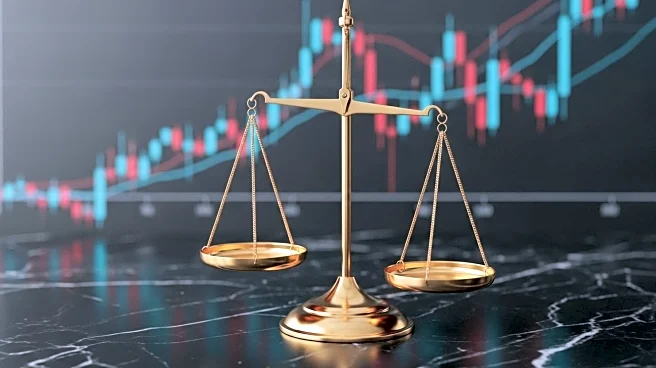What is the story about?
What's Happening?
The U.S. dollar, traditionally strong in global markets, has experienced a decline due to President Trump's tariffs, criticisms of the Federal Reserve, and distancing from international allies. Despite these challenges, the dollar remains the primary currency in central bank reserves, as reported by the IMF. The dollar index, which measures its value against other major currencies, has seen its worst performance in the first half of the year since the 1970s. This situation has led to increased scrutiny of the dollar's position, with gold, the euro, and the Chinese yuan poised to benefit from its weakened state.
Why It's Important?
The weakening of the U.S. dollar has significant implications for global trade and economic stability. As the dollar's value decreases, it could lead to shifts in international currency reserves and affect global financial markets. Countries that rely heavily on the dollar for trade may face increased costs, potentially impacting their economies. Additionally, the rise of alternative currencies like the euro and yuan could alter the balance of economic power, influencing international relations and trade agreements.
What's Next?
The future of the U.S. dollar will likely depend on upcoming policy decisions and economic indicators. If President Trump continues to implement tariffs and criticize the Federal Reserve, the dollar may face further challenges. Conversely, any positive economic developments or policy shifts could stabilize its value. Stakeholders, including international investors and governments, will closely monitor these developments to adjust their strategies accordingly.
Beyond the Headlines
The dollar's decline raises questions about the long-term impact of U.S. economic policies on global financial systems. Ethical considerations regarding trade practices and international cooperation may come to the forefront as countries navigate these changes. Additionally, cultural shifts in economic power could influence global perceptions of the U.S. and its role in international affairs.
















